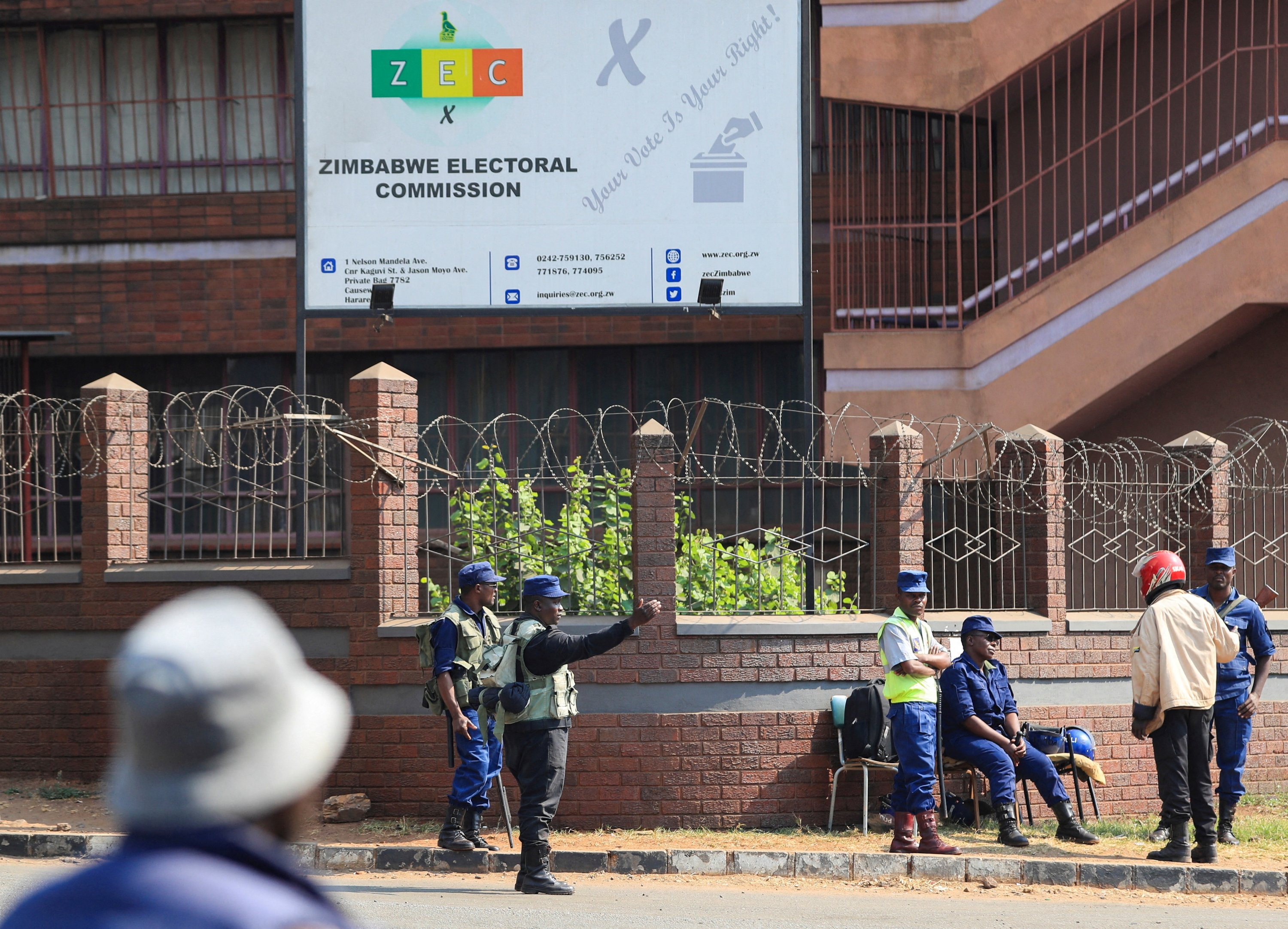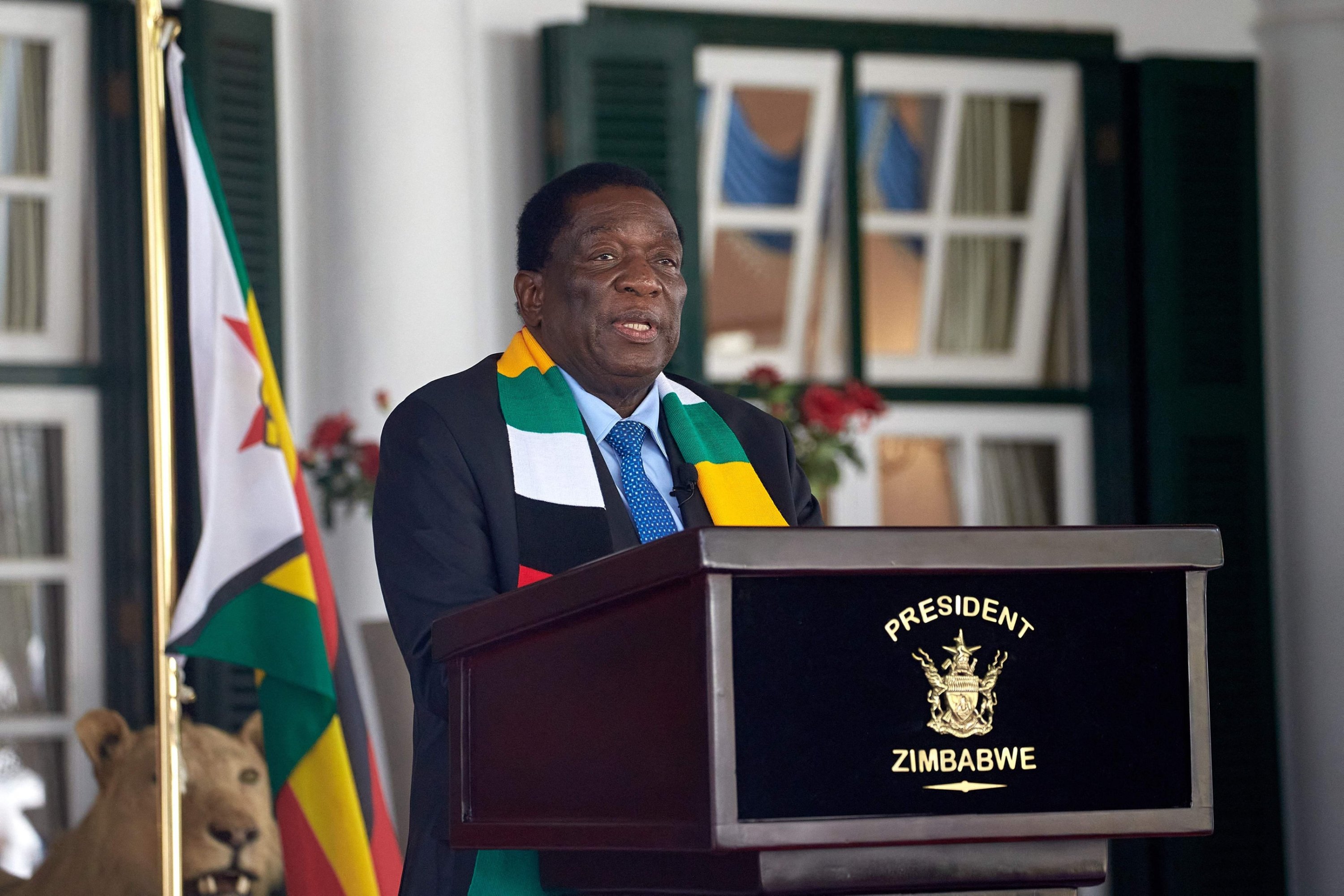© Turkuvaz Haberleşme ve Yayıncılık 2024
Zimbabwe stands at a crossroads, teetering on the precipice of political uncertainty in the wake of last week's hotly disputed elections.
Official tallies pronounced President Emerson Mnangagwa victorious, securing a second term with 52.6% of the vote.
His main rival, Nelson Chamisa, trailed behind at 44%.
But these results have ignited a fierce feud, plunging the nation into a state of limbo that could potentially tip into a perilous abyss.
The cacophony of dissent was amplified as the opposition Citizens' Coalition for Change (CCC) party vehemently rejected the outcome, alleging a litany of irregularities, and demanded a rerun.
This political impasse has darkened the horizon, casting a shadow over the hopes of millions yearning for a transformation in the nation's fate.
Bekezela Gumbo, the lead researcher at the Zimbabwe Democracy Institute (ZDI), cautions about the future.
"By then, it will be very clear that the challenges besetting Zimbabwe would be beyond his capacity and attributable to his incapacities and failures," he said.

The actual voting process, which unfolded on Aug. 23-24, was marred by lengthy delays, prompting accusations of rigging, voter intimidation, and suppression from the opposition.
The stinging criticism was compounded by reports from regional and international observers, including missions from the African Union, Southern African Development Community, and the European Union, all of whom declared that the elections had fallen woefully short of international standards.
Chamisa, in a defiant address to reporters, strongly denounced the elections as a charade, asserting, "We have won this election. We are the leaders."
Yet, the Zimbabwe Electoral Commission (ZEC) has named Mnangagwa the victor, leaving Chamisa's path forward uncertain.

Gumbo suggested that the opposition's predicament might find resolution in Zimbabwe's courts, which he deems "the most peaceful of all the options available."
He contended that even if the court favors ZANU-PF, providing sufficient evidence will expose the truth to the world and convince the electorate.
However, not everyone shares this optimism.
Abdony Marime, an academic at the University of Zimbabwe and a political analyst, points out that Zimbabwe's political landscape is marred by polarization and a refusal to accept opposing views.
Some experts view the country's judicial system with skepticism, believing it to be aligned with the ruling party.
Wurayai Zembe, a political analyst, claims that the courts have been "captured" by ZANU-PF in the past. He warns that a court decision against the will of the people could lead to chaos and disorder.
For Zembe, the solution lies in "hammering out a new electoral and constitutional order where another election should be held" under the supervision of international bodies like SADC, the African Union and the United Nations.
Rashweat Mukundu, a researcher with the nongovernmental organization (NGO) International Media Support, could not see a swift resolution in sight, predicting a protracted political crisis.
Mukundu believes that political dialogue facilitated by the region is essential to finding a solution.
Elvis Mugari, a fervent Chamisa supporter, dismissed the courts as a viable recourse.
"Going to the courts is a waste of time. The judicial system has proven time and again that it's an institution that favors the ruling party," he said.
